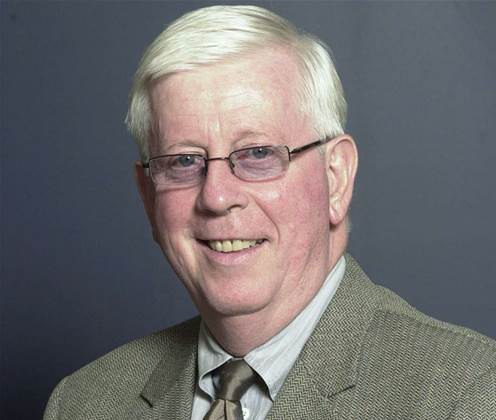Australia is falling behind the rest of the world in using information technology to improve the healthcare sector, according to an Australian leading the implementation of an eHealth system in Sweden.

Kerry Stratton, managing director of Healthcare for software developer InterSystems in Australia, is two months into a trial of a national electronic health records project in Sweden, and said Australia has a lot to learn from the Scandinavian country.
Analysts suggest Australia is both in need of an eHealth overhaul and at the crossroads of accepting the privacy implications.
But Stratton said there is a lack of political will or unity in Australia.
"We have to get on with it," he told iTnews. "We can't keep talking forever."
The Swedish example
Sweden started looking into the possibility of an electronic health record system around three years ago, driven by the need to put key clinical information in front of doctors and nurses at the point of care.
The country's health officials recognised that the most vital information required for such a system is a patient's medication history - what medications they are currently on, whether they have had similar medications prescribed, and whether they have any allergies or reactions to previous medications.
This information is critical when prescribing new medications.
InterSystems signed a contract with the national government of Sweden in March 2008 for the build of a national health record system and kicked off a live pilot in April 2009.
The live pilot phase will last three months, with a limited number of healthcare professionals gaining access to the system in a limited geographical area (the municipality of Örebro, west of Stockholm.)
Stratton said the pilot "has to provide results and clarity and confidence and 100 per cent uptime before [the Swedish Government] will announce it and sign it off as being able to go into live production for the rest of the country."
Sweden chose a model whereby patient information is stored on central servers and accessed by primary and acute care providers via the internet.
When a request for patient information is made, the system checks the request against a national database for the security and privacy requests of Swedish citizens, which sends back a message as to whether the system can access specific patient information.
Stratton said Sweden adjusted its privacy laws to ensure the system could "provide information doctors and nurses could rely on."
Swedish citizens, meanwhile will be able to access their own records and also look at who has viewed their information via a running log of access to their files.
Stratton said the Swedish system is opt-out rather than opt-in. Despite the objections of privacy experts in most corners of the world, he does not believe an 'opt-in' system works.
"One of the things to make these things successful is to get doctors and nurses to use them," he said.
"They will only use them if they are confident the system is useful."
Stratton said Australia can learn five key lessons from the Swedish trail - read on to page 2.


_(33).jpg&h=140&w=231&c=1&s=0)








 iTnews Executive Retreat - Security Leaders Edition
iTnews Executive Retreat - Security Leaders Edition
 iTnews Cloud Covered Breakfast Summit
iTnews Cloud Covered Breakfast Summit
 Melbourne Cloud & Datacenter Convention 2026
Melbourne Cloud & Datacenter Convention 2026
 The 2026 iAwards
The 2026 iAwards












_(1).jpg&h=140&w=231&c=1&s=0)



